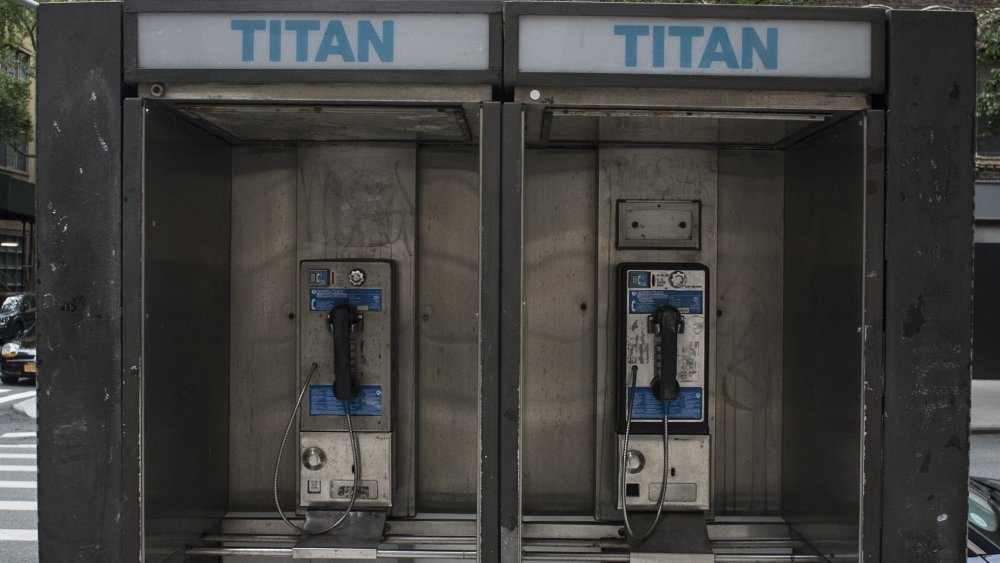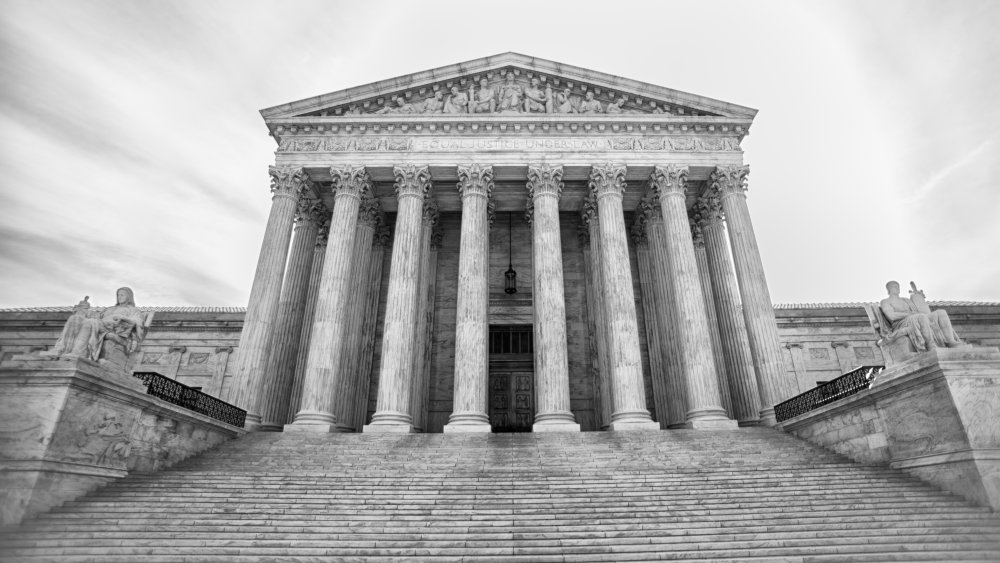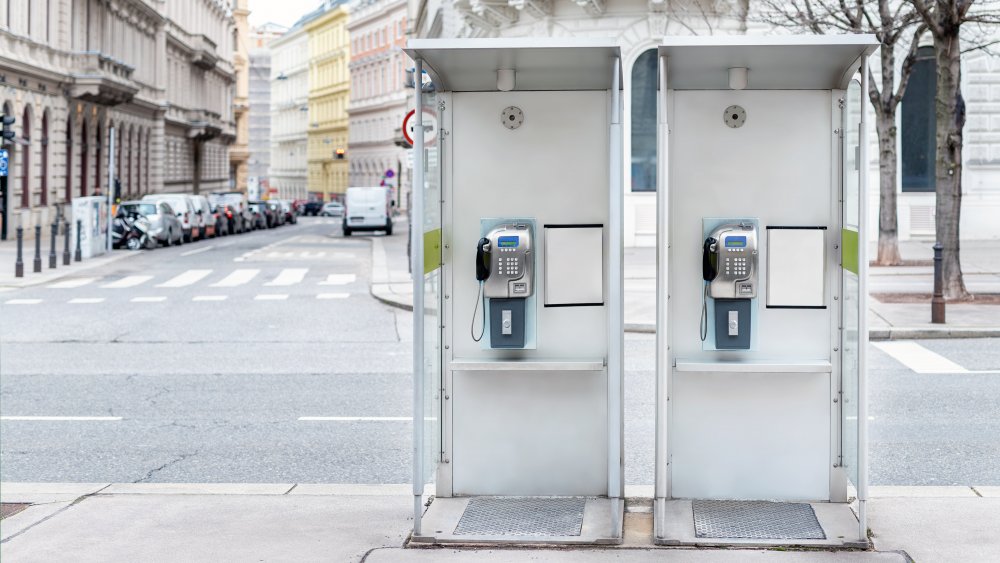The Shady History Of Payphones
Stories about the end of public payphones, when they are published, tend to sound like coverage of their phasing out in New York, which CNN ran in March: basically, a statement is released by the City Council Speaker, a Corey Johnson in this case, that talks about obsolescence: "The antiquated and outdated payphone booths take up much-needed sidewalk space."
While payphones certainly are an outdated technology, however, a more interesting angle was found in the rationale given by the City Council of Baltimore in May, as reported by the Baltimore Sun. As explained by Norman A. Handy Sr., a city councilman and pastor of Unity United Methodist Church in West Baltimore, the primary motivation for their payphone ban was to reduce drug trafficking: "[The] larger number of [payphones], where you see four and five phones on one corner, tend to be where there is illegal drug traffic in East and West Baltimore."
You may intuitively understand this, or remember how in The Sopranos, Tony Soprano is always driving off to an apparently random payphone to receive a call from Christopher or Pauli. What you may not know, however, is that the reason these phones are used for illegal activities is that they are devices that give legal protection to conduct said illegal activities.
Katz v. United States
In October 1967, Harvey Schneider, now a retired Los Angeles Superior Court Judge, argued the highlight of his career before the Supreme Court, according to C-SPAN: Katz v. United States. As Schneider told it, he laid out a case in which Charles Katz, a basketball handicapper, would use the payphone by his apartment to provide the handicaps for certain games. The FBI discovered this, bugged the phone-box without a warrant, and arrested Katz. The defending argument that Schneider eventually brought before the Supreme Court was that a person had the same right to be left alone in a phone-box as in his home.
The two specific questions Schneider asked were, as preserved on Cornell Law School's Legal Information Institute:
"'A. Whether a public telephone booth is a constitutionally protected area so that evidence obtained by attaching an electronic listening recording device to the top of such a booth is obtained in violation of the right to privacy of the user of the booth.
'B. Whether physical penetration of a constitutionally protected area is necessary before a search and seizure can be said to be violative of the Fourth Amendment to the United States Constitution.'"
After disparaging everyone's formulations of the debate and acknowledging Katz's certain guilt, they sided with Katz, because "the Fourth Amendment protects people and not simply 'areas'—against unreasonable searches and seizures." Meaning, since Katz was not making his bets public, but privately talking about them, the FBI required a warrant.
Privacy or public access?
As the Atlantic expounded upon in 2017, the decision of Katz v. United States turned phone booths a popular place to carry out illicit dealings, with crime spiking in the nineties. Similar treatment of payphones even followed beyond the rise of the mobile phone into the 2010s. Since, as the New York Times reported in 2016, New York City decided to transform old, disused payphones into wi-fi kiosks, people started using them. And since people are people, they started using them for illicit ends: "The wi-fi kiosks in New York were designed to replace phone booths and allow users to consult maps, maybe check the weather or charge their phones. But they have also attracted people who linger for hours, sometimes drinking and doing drugs and, at times, boldly watching pornography on the sidewalks." The city quickly rectified this by turning the speakers down at night and placing filters over searches for pornographic materials.
Rather than seeming quaint, the privacy of a payphone now comes across as rather enlightened, when compared to the internet landscape where such privacy never exists, technology is always tracking you, and too few really question this.


